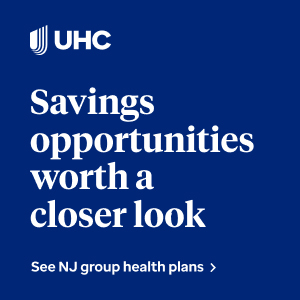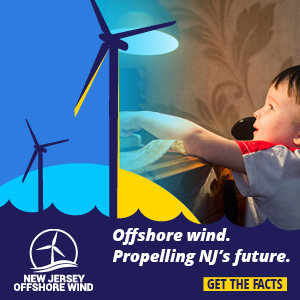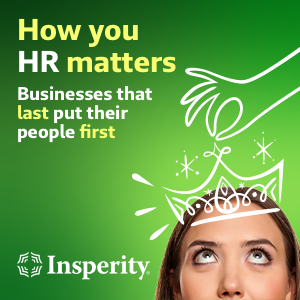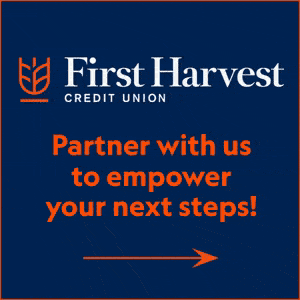
The Unifying Power of Promo
These tumultuous times have affirmed swag’s ability to bring people together.
As the coronavirus pandemic raged this year, another disease continued unabated: opioid addiction.
Between 1999 and 2018, 450,000 Americans died from an overdose involving an opioid, according to the Centers for Disease Control and Prevention (CDC). The epidemic is ravaging cities and towns across the country – a hidden genocide that goes ignored unless you personally know someone caught in the trauma of addiction.
Now, there’s fear among public health experts that COVID-19 shutdowns have exacerbated the problem, since addicts have been isolated with fewer distractions from their drug use and haven’t had the same access to treatment due to closures, according to the American Journal of Managed Care.
The Canale family knows firsthand about the insidious nature of addiction. In May 2017, they lost their daughter and sister Toni Andrea. She was just 28.
Her heartbroken family turned their grief into action. In the months that followed her untimely death, family and friends knocked on doors in their close-knit South Philadelphia neighborhood and gave out brown and white bows for front porches, as a sign that they would keep fighting the stigma of addiction. It was part of an initiative called “Brown and White” started by Tony Luke, a famous Philly restauranteur who lost his son Anthony to heroin just two months before Toni’s death.
But the Canales didn’t stop there. Toni’s three sisters established their own “Team Toni” initiative with an active social media presence. They’ve spoken at rallies and community events, and continue to participate in PRO-ACT Recovery Walks to raise critical funds for the Women’s Recovery Community Center in Philadelphia. They’ve even thrown out first pitches at Phillies games.
Toni’s sister Linda Milano is the owner of CFB Promotional Products, a Kaeser & Blair (asi/238600) dealer in Sicklerville, NJ, half an hour south of the city. Since her sister’s passing, she’s used her more than 20 years of expertise in promo products to design Team Toni items for supporters, including T-shirts, mylar balloons, hats, silicone awareness bracelets and fidget spinners. This year, they’re developing plans to design face masks and socks in peach, brown and white that can be kitted and dropshipped to individual supporters’ homes, along with custom thank-you notes, since in-person events are largely on hold.
“Our mission is to bring awareness to the disease of addiction,” says Milano, “and to bring an end to the stigma that’s associated with the disease.”
The simplest view of promotional products is that they’re just things you slap a logo on. But with the notions of social justice and helping others at the forefront of our minds in these difficult times, there are constant reminders of how merchandise with a message can be used to bring people together. Branded swag shows the wearer to be a supporter and a member of a community united around a cause. And as the lightning responsiveness of social media brings a movement to life in an instant, promo products have kept up with online company stores and on-demand printing with low minimums – digital mechanisms that can get promotional products into supporters’ hands quickly.
What follows are several examples of how promo companies have utilized their services to make a difference. But it’s important to remember that distributors and suppliers will be called on by groups that aim to sow division and promote inflammatory and hateful messaging. As promo companies determine what’s acceptable and who they’re willing to work with (see below “The Right to Say No?”), they must consider these complex moral times and the role they want to play. Promo has the ability to bring people together and tear people apart – and it’s promo companies that hold the power.
“All promo is designed to manipulate, whether it’s a garment or a pen,” says Monica Maglaris, co-founder of Liberty Print Co. in Beacon Falls, CT. “It comes down to whether it’s for good or it’s self-serving.”
The Forefront of Today’s Causes
Days after George Floyd died while being pinned to the ground by former Minneapolis police officer Derek Chauvin, protests against police brutality broke out in countless cities across the country. While the headlines in those first heady weeks focused on more violent rioting and looting, the ongoing peaceful protests became an opportunity for people to show their support for the Black community and call for reform in police departments.
Liberty Print Co. happened to have 200 finished caps with a “Be Kind” message in storage after the event they were meant for in March – a fundraiser called “A Night of Kindness” for the Yale Gender Program – was canceled due to COVID-19. They had plans to donate them and write them off as a loss. But as soon as the tragedy occurred in Minneapolis, Maglaris and her team figured out another use: They would sell them and donate the proceeds to the GoFundMe page of George Floyd’s family. Once they advertised the Be Kind fundraiser, they sold half the hats in less than a week. Now they’re considering doing other products with the same messaging.
“We just followed our instincts,” says Maglaris. “The donation helps people, and it also puts out a high-level vibration and the energy just keeps going. Our company logo is two clasped hands, which symbolizes my business partner and me, so we’ll include that on everything we do because social movements are partnerships.”
Tom Rector, CEO of ScreenBroidery (asi/305623) in Indianapolis, says his company’s clients include the Indianapolis Metropolitan Police Department (IMPD) and many businesses that were looted and damaged in late May and early June. “There are a lot of mixed emotions right now,” he told Advantages in June, in the wake of the unrest. “People are just trying to figure out where they stand and the message they want to communicate.”
During the COVID-19 shutdowns, Indianapolis lost Officer Breann Leath, who was shot and killed while responding to a domestic disturbance call on April 9. ScreenBroidery partnered with the Indy Public Safety Foundation and the IMPD to design and sell T-shirts to honor her memory and benefit her family, including her 3-year-old son.
Business has been brisk at Bonfire, a Richmond, VA-based merchandise design platform and e-commerce site that gets social movement swag into people’s hands quickly, with a mission similar to popular individual fundraising sites. “GoFundMe has been around a while,” says PR manager Josh Kelly. “But it’s another thing when people donate to a cause and they get something that makes them part of a community.”
Bonfire has provided merchandise to large-scale events before, like the 2017 Women’s March in Washington D.C. (their swag raised $1.4 million for organizers after several iterations of the event) and 2018’s March For Our Lives, in addition to smaller community marches, protests and advocacy organizations. While conservation and animal rescues have been steady markets, in May and June of this year, designs coming in shifted toward Black Lives Matter, the NAACP and bail and defense funds for protestors. Many of them target small niche groups, such as a design that had the word “black” in CSS Code for computer programmers to express their support for Black Lives Matter. Bonfire sold more than 550 shirts with that design and raised nearly $12,000 for the Black Lives Matter Foundation.
“That shirt doesn’t make sense at retail, where there’s a lag time,” says Bonfire’s production manager Shaun Reinhold. “On our marketplace, there are a wider variety of viewpoints that fit people more specifically. Customers want to wear products that fit with the moment, and not go out and look for apparel. They want to share their current opinions quickly.”
Surviving Coronavirus Together
In early spring, as COVID-19 bore down on the United States, travel plans were canceled across the board. According to the Bureau of Labor Statistics, the unemployment rate in the Leisure and Hospitality sector stood at an eye-watering 36%.
At Wet Paint Group in Centennial, CO, the shutdowns have been a prime opportunity for an initiative from the company’s Good Vibes Marketplace, which the team had been working on for the past couple years: drop-shipped teaser kits of socially conscious items for travelers (such as towels, candles, sunglasses, watches, sandals and speakers) headed for high-end incentive trips and sales meetings. With trips canceled, the kits became perfect work-from-home gifts and virtual conference swag.
And now, with many industries and charitable organizations suffering because of the pandemic, portions of the proceeds go to the Above and Beyond Foundation to benefit workers in the hospitality industry, as well as HERproject, Hire Heroes, Our Children’s Vision, Starkey Hearing Foundation and others.
“It started as an amenity experience for top producers,” says Annmarie Hoskins, vice president of sales. “Now these things are going virtual. No one can travel, so how are we feeling about that? Keeping motivation boosted is important. These kits are ideal for anyone experiencing a morale deficit and missing the group dynamic.”
Right now, they’re being used as stay-at-home gifts. But as events get rescheduled, Hoskins says they’ll use them as teaser gifts ahead of trips and as on-site gifts during the events. “Companies are starting to spend again and kicking it into gear,” she says. “We’ll have to adapt to changed formats. For instance, before it may have been a two-day event with 500 people, and now it’s three days with 50 inside and 50 outside and rotating. But it’s really been an opportunity for us to seize the moment.”
Core institutions, social services and charitable causes have experienced a huge financial hit as a result of the pandemic. One of those hard-hit organizations was Lumpkin Family Connection, a county chapter of Georgia’s Family Connection service established in 1991. Then-Governor Zell Miller founded this network of support services in each county, and they rely in large part on private donations.
“Customers want to wear products that fit with the moment. They want to share their current opinions quickly.”Shaun Reinhold, Bonfire
In Lumpkin County, where Graham Edwards owns Striker Marketing (asi/186075), Family Connection advocates in schools determine who’s in a state of need and helps them access services, such as food, clothing and utilities assistance. Their biggest annual fundraiser is “A Taste of the Mountains” (in reference to Lumpkin’s location in the Appalachian foothills), when local restaurants serve up their best eats to ticketholders. Unfortunately, this year’s event was canceled, which put a huge dent in Family Connection’s funding.
Edwards and his wife wanted to help, so they came up with basic screen-printed T-shirts and laser-engraved tumblers and put them on an e-commerce site they promoted on social media and in their weekly community paper. In two weeks, they sold 359 shirts and 36 tumblers, and raised $2,000 for the organization.
“One Family Connection coordinator said that when she sees a shirt on the streets, she knows her work is important,” says Edwards. “It sends the message that people support our community. It was a basic offering, nothing too elaborate, but it shows how we were able to pull together.”
In Cheshire, CT, Barker Specialty (asi/132690) President Jerry Barker rallied his employees – at the time, all in their home offices – to figure out a way to help small businesses attempting to reopen. They designed simple social distancing T-shirts and sold them on their website with 10% going to small business and local charities, including the local food bank.
“We sold 100 in a weekend and raised $3,000,” says Amy Fields, director of marketing. “We were excited that we were able to give them something, and it’s also sparked ideas among clients. That’s what Barker’s about, maintaining goodwill. Our employees bought them too. We were going to give them for free, but they wanted to give back. It’s been an awesome experience and I’m proud of how it turned out.”
For James Warlick, the healthcare worker situation hits particularly close to home. The promotional marketing specialist at What’s Up Promotions, an AIA affiliate in Kensington, MD, has an 18-year-old daughter with aspirations of becoming a nurse for the Navy. So when things got tough at healthcare facilities this spring, Warlick and his family designed care packages for doctors and nurses that they’ve been distributing thanks to private donations.
“Many of these healthcare workers were sleeping in their cars just to get some quick shuteye,” says Warlick. “We called and asked them what they could use, and we used our industry resources to keep it as affordable as possible. We also wanted to be transparent, so we have a pricing breakdown on our website. We’d like to get to 40,000 sold.”
The branded boxes for the “We Love Hospital Heroes” campaign include a branded T-shirt, laundry bag, toothbrush and paste, earplugs, snacks and more for their long shifts. Warlick enlisted an employee at his former company, who moved to New York City for graphic design work, to help him with the logo and messaging. The designer said he’d consider leaving his job and helping Warlick full time; they’ve even discussed launching a full-fledged foundation down the line.
“We want to impact people,” says Warlick. “It’s been fun, and we’ve gotten a lot of positive feedback.”
For the Long Haul
While swag for the pandemic and racial equality has been in the public spotlight in recent months, other types of promo express support for longer-running awareness efforts. Gary Marvin, general manager of Smashing Factory (asi/87816) in Fresno, CA, says they’re still doing election promos – which have been drop-shipped to supporters instead of handed out at events – and tons of Pride merchandise in recent years.
“I can’t believe how much we’ve done for Pride,” he says. “We embroidered a company’s logo in rainbow colors on socks, printed shoes with DTG and screen-printed T-shirts. A lot of it is for Midwest and East promos, and California is really big for it too. And we’re seeing more and more corporate branding, with companies tying themselves to the cause. Right now, we’re printing Pride shirts for retail stores in Texas, and we recently did an order for eBay.”
Others work tirelessly on awareness efforts that may not fit the traditional notion of a social cause but are no less important to fostering unity and improving society. Nick Mirabile, vice president of merchandise & licensing at Stran Promotional Solutions (asi/337725), in Quincy, MA, worked for countless hours in 2019 and 2020 to finalize a major promotional program for the government’s 2020 Census push. It’s taken place every 10 years since 1840, says Mirabile, and the government relies on outreach ahead of time to educate people about the importance of the Census and encourage everyone to participate, whether by mail, phone or online, by the fall deadline.
“It’s a massive undertaking,” says Mirabile. “It’s a legal mandate under the Constitution. Every man, woman and child should be counted. The government allocates funds for infrastructure, schools, hospitals, first responders and more based on the count of a specific area. They want an accurate count so states and municipalities get their fair share of funding.”
Mirabile has done a variety of products for the federal government and even local community sponsorship groups that get the word out in their areas, to the tune of 20 million domestically sourced pieces. He’s sold T-shirts, bags, pens, drinkware, and even baby beanie caps and mothers’ gifts for maternity wards to raise awareness to the fact that the most under-counted segment of the population are children from newborn to two-years-old.
“For an accurate count, they rely on people to take the time to respond,” says Mirabile. “If you don’t do it, it’s not like they know you’re there and you just didn’t participate. The objective is to educate about what the Census is, inspire people to get involved and motivate them to participate. Census organizers have been using swag since the late 1960s. It’s gotten more sophisticated, but it’s still about bringing communities together.”
Maglaris at Liberty Print Co. has designed shirts for Project Purple, a pancreatic cancer awareness organization committed to sharing the importance of early detection in successful treatment. Now, with many preventative services on hold during COVID-19, the cause is going to be more important than ever.
“It’s the biggest pancreatic cancer foundation in the country,” she says. “They’ve given $1 million checks to cover a lab for a year so they can just devote their time to research. The proceeds are going to people who really need it and there’s energy behind it. We look for opportunities where we benefit our karmic cycle.”
Additional Info
Source : https://www.asicentral.com/news/web-exclusive/july-2020/the-unifying-power-of-promo/?fbclid=IwAR0rgAKjcAaGwhcVZtU3t7v9o6u9pBnoSitn0ON01Emon65ZOmTRwMps






